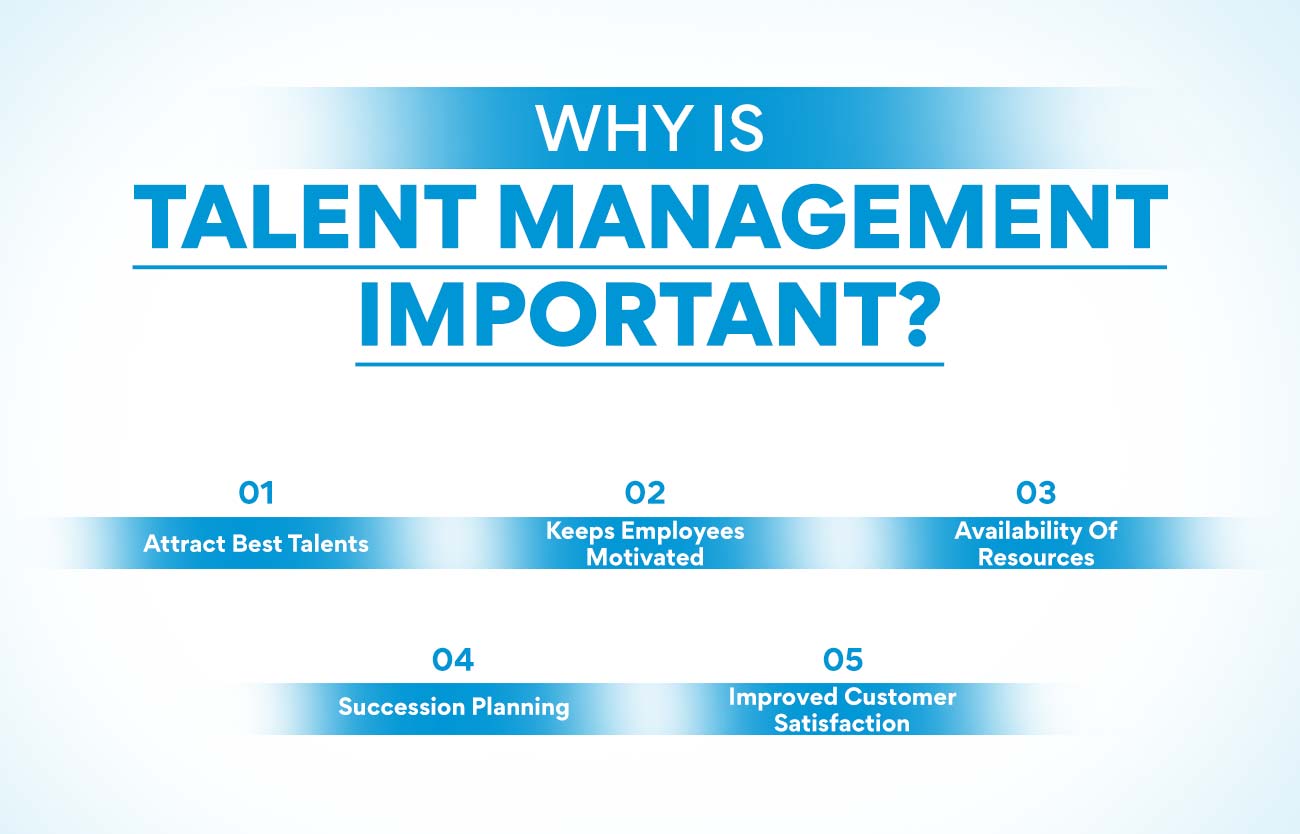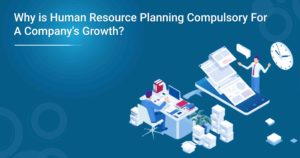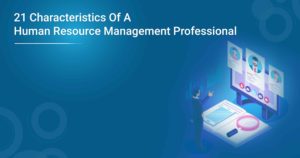Hiring people who can perform the required tasks is no longer enough. Companies must hire people who can satisfy today’s needs and also have the potential to take up higher responsibilities in the future. The market is becoming more competitive and changing very fast. Customer needs are shifting quickly, requiring companies to be ready to meet the changing demands. Companies must ensure that their employees can rise to meet new challenges. Talent management is a process that helps companies attract, develop, motivate and retain good employees.
What Is Talent Management?
As aspiring HR professionals, you must understand talent management well and know about it in detail. The process starts with identifying the present and future talent gaps. The HR department must find the right talents and attract them to the company. They must be aware of the market conditions and offer such benefits that a good candidate will find it difficult to refuse. While employing someone, the human resource team must assess the person’s future potential.
Market conditions are constantly changing, and this needs employees to possess the latest skills needed to remain competitive. Companies must implement the necessary programs to impart such capabilities to their employees. The HR department must also ensure that workers in the company can use their full potential. Firms must reward them suitably to keep them loyal to the firm. Talent management is a process of being with employees throughout their journey in the establishment and ensuring that both the organisation and its staff members benefit from the relationship.
Talent management is different from talent acquisition. While the latter deals with hiring and onboarding talent, the former is about bringing out the best in employees. It also supports the growth of people in the company and helps them build beneficial career paths. One can learn more about it by attending our post-graduate certificate course in human resource management offered. You can check out the course details on our website.
Talent Management Strategy
Before you can embark on the process, you must have a clear talent management strategy. While formulating the policy, it is important to get some points clear. Firstly, the company must know the goals that will help measure success. It must also know what aspirations the firm and its employees have. Taking care of an organisation’s star employees is important because the firm cannot achieve its objectives without them. The next important thing is to understand how the company wants to be known in the context of human resource management.
Not all establishments want to achieve similar goals. Some firms may want to be known as good employers. Becoming such an organisation will require a lot of effort on the part of HR managers. But this image will help in attracting talents from all over. It will also result in people from different backgrounds wanting to work in the company. Some companies may only want to hire people from one field. In such cases, efforts are better channelised for acquiring tools that help these employees do their jobs well. Talent management models help focus on the company’s specific goals.
There is competition in hiring good people. A good talent management plan will help a company beat others. Creating a good brand image, getting a name as a good employer and retaining employees are all ways to attract good talent to the firm. The skills needed for this kind of employee management are not the same as for regular HR activities. You will need special skills to market the company to prospective employees. Professionals in the personnel department must also know to use modern technologies like data analytics to make the best out of existing employees.
Understanding The Process
Now that we have seen how to strategise let us see the different steps in the talent management process. Following the steps correctly will lead to the successful implementation of the programme.
- Planning
Two types of planning are required here. Firstly the company business plan must be in place. It should be clear as to what it wants to achieve. Once the objective is set, then a workforce plan must be made. Workforce requirements must be identified. In consultation with various business heads, HR managers must decide what skills need to be acquired and how many people with such skills are needed. This planning must be done very precisely for the success of the exercise.
- Branding And Reputation
If a firm wants to attract good people to it, then it must create an image of being a good employer. Prospective employees must be sure that joining the company will do good for their careers and future. People look at not just the size or turnover of the establishment when applying for a job. They also consider the working culture, employee benefits, and growth opportunities. Building a reputation for being employee-friendly is a long-term effort. It is also part of the talent management process.
- Attracting Good Talent
If companies must achieve their objectives, they must fill the gaps in the workforce. It can be done by sourcing from external sources or choosing people from within the firm. The HR team must have a good flow of candidates to select the most suitable ones. Here, talent management strategies like company branding and creating the image of a good employer help a lot. Such a reputation will help attract the best talents in the market. Instead of the establishment going after candidates, they will approach the firm for jobs.
Also, Read HR Audit: Know its objectives, importance & limitations
- Selecting The Right Person
It is not enough to attract a lot of job seekers. The company must be able to pick the most suitable one among them. It is not just the qualification and skills that influence the selection. Various other things, like the person’s social background, matter greatly. The new employee must be able to fit into the company environment and adapt to its culture quickly. The HR team will conduct a variety of tests to evaluate the candidate. They can make use of AI-enabled solutions to pick the right person.
- Employee Development
The modern trend is to select employees for their attitude and not just for their skills. Companies believe that people with the right attitude can be taught any skill. Moreover, in such cases, the firm can equip the employees with the precise skills needed for the job. The new staff members can also be groomed for future responsibilities. This will improve the loyalty of the workers and improve retention. Talent management is all about providing opportunities for employees to learn new skills. More and more establishments also believe in rotating jobs to make them capable of handling different situations.
- Employee Retention
An important function of HR departments in most companies is employee retention. It is not easy to keep workers loyal to the firm. There are so many opportunities for skilled and capable people. Holding them back in the company and keeping them happy is an important part of talent management. There are various ways in which establishments can retain their good employees. Timely promotions, salary hikes, providing growth opportunities and involving them in making important decisions are all ways to keep staff members in a company. The HR department must constantly look out for hints of dissatisfaction among employees.
- Transformation Of The Organisation
The ultimate aim of any development programme is to transform the company itself into a better entity. This can happen only if the individual members are changing into better employees. To achieve this, HR managers should encourage workers to perform as a group. Staff members must be made to feel that they are part of a bigger entity and that their contribution is crucial for the company’s growth. Human resource officials must have excellent succession plans in place for a smooth journey.
The above only gives a brief description of the talent management process. The curriculum of our post-graduate certificate course in human resource management covers this in detail. Check out our website to know details about this course.
Why Is Talent Management Important?
Talent management is not just a new term in human resource practices. It is very important for the growth of companies. It is a strategy that helps organisations retain the best talents while also helping them grow and develop. Here are a few reasons why every company must implement this strategy for its growth.

Attract Best Talents
All companies want to hire the best hands from the market. It will help improve work efficiency and, consequently, the profitability of the organisation. But not all firms can get the best people. This is because they have not implemented any systematic programmes for attracting highly skilled candidates. Talent management enables companies to put in place a strategy that will prompt the best talents to apply for a job there. It will give the establishment an image of being a good employer. The firm’s brand image will also improve substantially.
Keeps Employees Motivated
A good talent management strategy helps to keep employees motivated. Studies have proven that it is not just money that keeps workers staying in a company for a long. They must feel motivated to work hard and contribute to the organisation’s progress. Rewarding them for their good work is an excellent way to keep them motivated. Regular training to keep the workers ready for future challenges makes them feel that the company is interested in their personal growth. Involving them with important decisions also helps keep employees excited about their work.
Availability Of Resources
Having the right manpower resources for the changing needs of a company can be a daunting task for HR managers. The market is becoming competitive, and this puts pressure on the company to find new ways to attract customers. To achieve this, the firm must have workers who are skilled in providing innovative products and features. Finding new people from outside every time a new skill is needed is difficult. This is why companies must implement talent management, where continuous training is provided to employees to acquire new skills.
Also Read: Employer Branding: What is it and how is it done?
Succession Planning
Despite their best efforts, companies keep losing good workers. Some leave when they reach retirement age. The firm must not be at a loss to find the correct replacement for such people. This is highly important in the case of leadership and critical positions. The loss of a multi-skilled person can result in increased costs as the same work must be given to multiple employees. A good talent management program will help in such times as it involves continuous training in multiple skills and job rotation. The firm will have people who can take up important posts immediately.
Improved Customer Satisfaction
Talent management doesn’t just result in loyal employees and a growing company. The result of this strategy is better customer satisfaction. When the workers in a firm are more skilled, the products will be better. When a single employee is equipped with multiple skills, the person can handle the different needs of customers. This results in clients having to deal only with fewer people to address their needs. When the organisation has more satisfied customers, it will automatically lead to higher revenues and better profits. This, in turn, helps the establishment keep its employees happy.
There are so many benefits to implementing this strategy that every HR professional must know about it in detail. You can learn everything about talent management in the post-graduate certificate course in human resource management. Visit the website for details of this programme.
The Best Talent Management Strategies
Training And Development Tools
Whatever the industry, every company needs to give adequate training to the employees to help them develop and contribute their best to the company. But it is not enough to use the old methods of training. As part of your talent management strategy, HR managers must use modern tools for training. These include microlearning platforms, video training software, learning management systems and tools to create and deploy learning content. These tools also help you determine employees’ requirements and where they find difficulty. They also cost much less money than in-person training sessions.
Many online training platforms help to develop and deploy material to your employees on their computers or mobile phones. These user-friendly tools allow subject experts in your company to create customisable content and quiz programmes. Having regular online quiz programmes helps the learners to know their progress and helps the managers track the progress. Trainers can use these tools to teach inclusive diversity, crisis management, healthcare, safety or any subject that the employee needs to learn. These tools make talent management easy by providing an engaging learning experience to the employees.
Standardise Candidate Assessment And Hiring Process
Employees are the most valuable asset for any organisation. The firm must select the most suitable people to fill existing vacancies and future needs. It is difficult hiring good talents unless the company has standardised methods to assess candidates and employ them. Whether it is for a start-up or a large corporation, it is necessary to develop a standard hiring process that helps the company recruit the best people. One of the ideal ways to start the process is to have an excellent job description template.
Talent management professionals benefit a lot by standardising the job description template as it will help them give a clear idea to applicants. It will result in getting the right person for the job. It will also help greatly if the onboarding process is also standardised. It will convey the same message about the company to all employees, and they will clearly understand the mission and vision of the firm. Having a list of responsibilities for each position, the employees taking over that post will easily transition to the new post.
Measuring Performance
All employees want to move forward in their careers. It will require them to get promoted regularly. Companies can promote workers only if they are assessed periodically. For this purpose, the organisation must first have a set of metrics to measure the performance of the employees. Talent management executives must set goals and key performance indicators for all employees based on their position in the firm. It will help greatly in tracking the past and present performance of the person, doing what is necessary to improve them and helping them achieve their goals.
Tracking KPIs helps the company to know the knowledge gaps and do what is required to bridge those gaps. Managers will be able to pinpoint the weaknesses of the employees and help them get over their weak areas. Quizzes are an excellent way to assess a person’s knowledge and skills. Various tools help you develop quizzes and deploy them at regular intervals. These tools allow you to set the intervals in which you must deploy the quizzes. The easy-to-use dashboards also enable the talent management team to track employee progress.
Also Read: What is Stakeholder Engagement? Importance, Planning and Implementation
Provide Feedback And Reward Performance
Performance assessments are regular in all companies. It happens once to four times a year, depending on the company and the employee being assessed. These reviews are usually used to decide promotions, salary hikes and sometimes termination of jobs. This exercise allows the talent management team to provide feedback to the employee and also give examples from past performances. It is also a great opportunity to discuss their weaknesses and find ways to improve their capabilities. You can also gauge their motivation and level of commitment during these interactions. It also provides an opportunity to know what type of training they need.
It is not enough to just review their performance. Employees are paid for their work. But they also expect to be rewarded when they perform exceptionally well. Rewards for good performance should be part of the talent management strategy of every company. Studies found that one of the main reasons for people leaving a firm is lack of recognition or reward. The company must take deliberate steps to recognise good workers and reward them. The value of the rewards doesn’t matter. It is a way to motivate the employees.
Improve Employee Motivation
Companies cannot give rewards all the time to all employees to keep them motivated. But employees also sometimes lose interest in their jobs and perform below their capacity. At this time, it is essential to keep them motivated. The talent management strategy of the firm should include activities to motivate the workers. There are various ways to do this. Group activities outside the company are one great way to motivate the staff members. Giving them time to unwind is another way that works very well. Encouraging workers to go on vacation also works well to motivate them.
Formulate Career Development Paths
Nobody wants to remain in the same position for long. All workers want to go up the ladder and achieve better positions in their jobs. This is something that people look at when they join a new company. They must be sure that there are good career prospects in the company and that they will be able to achieve their professional and personal goals. If there are no growth opportunities or skill development, employees will likely leave the firm soon.
As part of the talent management strategy, companies must have a clear career development path for every employee they recruit. Having such a plan has a lot of benefits for the company too. It ensures that employees stay in the firm for a long time. By developing their skills, the organisation is proving its interest in the workers and this, in turn, gains their loyalty. When the staff members can expect to achieve better status in their jobs, they will also perform to their best capacity, thereby helping the establishment achieve its goals.
It is good to have a strong strategy, but you must have the support of everyone to implement it. You must convince the top management and others in the firm that you plan to help the company and its staff achieve their goals. So, how do you do it?
How To Convince Them About Your Talent Management Strategy?
Understanding The Goals Of Every Manager
Different department and team managers have different goals. All of them need the support of the HR department to achieve these goals. The talent management head needs to understand these needs and make sure that they are met. The HR head must interact with every department head and understand what staffing requirements they have. It is also essential to find out whether any of their staff members need training. Some of the teams may require new employees to fill skill gaps. Understanding their needs and fulfilling them is the best way to convince them about your strategy.
Also Read: Top 21 Human Resource Interview Ques & How To Ans Them
Hire High-Performing Employees
One of the ideal ways to establish your credibility as an excellent talent manager is to hire high-performing people when there is a need for new employees. To achieve this, you must have a solid hiring procedure that ensures that you continuously recruit only the best hands from the market. It is not easy in this competitive market. But there are many ways in which this can be achieved. The talent management team must identify ways to attract the best hands from the market. Improving the employer’s brand image is one of the ways to achieve this.
Build A Better Employee Experience
One of the ways to convince people about your talent management strategies is to make sure that your employees are more engaged in their work. The ideal way to ensure this is to provide them with a good experience in the company. Someone who enjoys working in the organisation is more likely to contribute more towards the firm’s profitability. There is no one-size-fits-all solution to creating a better experience. An effective way to achieve this is by understanding the needs of every employee and trying to provide this. You can understand their requirements by actively listening to them.
Create A Strong Succession Planning Strategy
What is the best way to convince the management about your talent management strategy? It is by having a person ready to take up a position that is becoming vacant due to retirement. Having a strong succession plan ensures that there is no delay in filling a vacant position, and this is what every management expects from their HR team. This process helps the organisational leaders know who is capable of filling a vacant position. The management is happy also because this process reduces employee turnover and saves hiring costs as a result.
Summing Up
We know how important employee retention is for the growth and development of a company. Staff members leave their jobs when it becomes boring and less challenging. Talent management equips employees with new skills and keeps them ready to face new challenges. It helps companies to take up new projects and earn better profits. Employees also enjoy growth in their careers and don’t think of leaving the organisation.
More Information:
10 Human Resource Management Books to become a better HR
What is an HR Business Partner: The Ultimate Guide




























